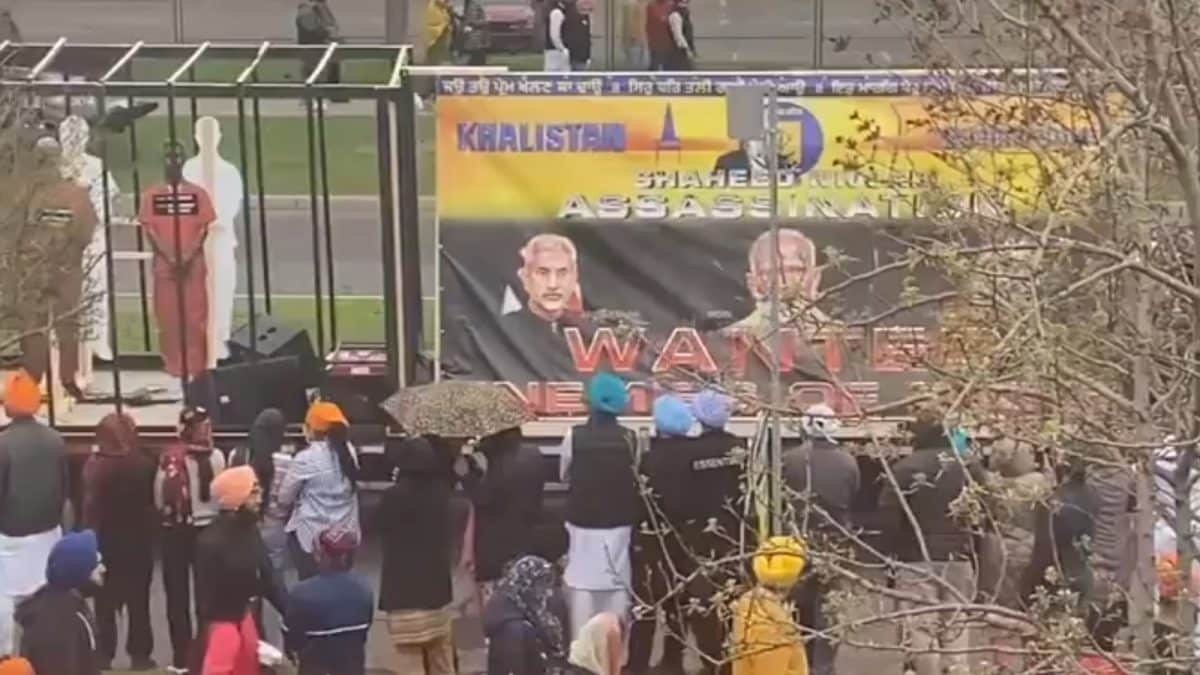Khalistanis Demand Deportation of Hindus to India During Parade at Canada's Malton Gurdwara

On May 5, 2025, a disturbing incident unfolded at Toronto’s Malton Gurdwara, where members of the Khalistani movement organized an anti-Hindu parade. During this event, they publicly called for the deportation of Hindus residing in Canada back to India. This alarming display raises serious concerns regarding the safety and wellbeing of the Hindu community in Canada, particularly as the nation welcomes a new political leader.
The demonstration, which garnered significant attention on social media, featured effigies representing prominent Indian political figures, including Prime Minister Narendra Modi and External Affairs Minister Dr. S. Jaishankar. The imagery of these effigies being caged sparked outrage and confusion among observers, as it symbolically portrayed the animosity harbored by certain factions within the Khalistani movement toward Indian leadership and, by extension, the Hindu populace.
Canadian journalist Daniel Bordman shared his thoughts on the incident on Sunday, stating that Canada's streets are becoming increasingly threatened by various extremist groups, including those aligned with Khalistani ideology. Bordman noted the potential for conflict between different radical factions, suggesting that the Khalistani protests could rival the threats posed by other groups. He questioned whether the new Prime Minister, Mark Carney, would approach these issues differently than his predecessor, Justin Trudeau. Bordman’s comments were a response to a post by a user named Shawn Binda, which labeled the Khalistani actions as born of “anti-Hindu hatred.”
Binda condemned the demonstration, highlighting that the Khalistani group, often referred to as the K-Gang, explicitly demanded the deportation of approximately 800,000 Hindus. He pointed out that these individuals belong to vibrant communities not just in Canada but spread across the globe, including countries like Trinidad, Guyana, Suriname, Jamaica, South Africa, the Netherlands, Malaysia, Sri Lanka, Singapore, and Kenya. Binda emphasized that this protest was not merely directed against the Indian government but represented an overt display of bigotry against Hindus, coming from a group that has been linked to some of Canada's most serious acts of violence and terrorism.
This anti-Hindu demonstration took place shortly after the recent national elections in Canada, where Mark Carney's Liberal Party emerged victorious. Carney had called for early elections after dissolving the Parliament, seeking to consolidate his leadership after Justin Trudeau's resignation. Trudeau stepped down amid growing discontent within his party, suggesting a significant political shift in Canada's landscape.
As this situation unfolds, the implications for inter-community relations in Canada are profound. The actions of the Khalistani group raise critical questions about the ability of the new government under Carney to effectively manage and respond to such extremist behaviors while ensuring the safety of all Canadians, regardless of their religious or ethnic backgrounds.



























